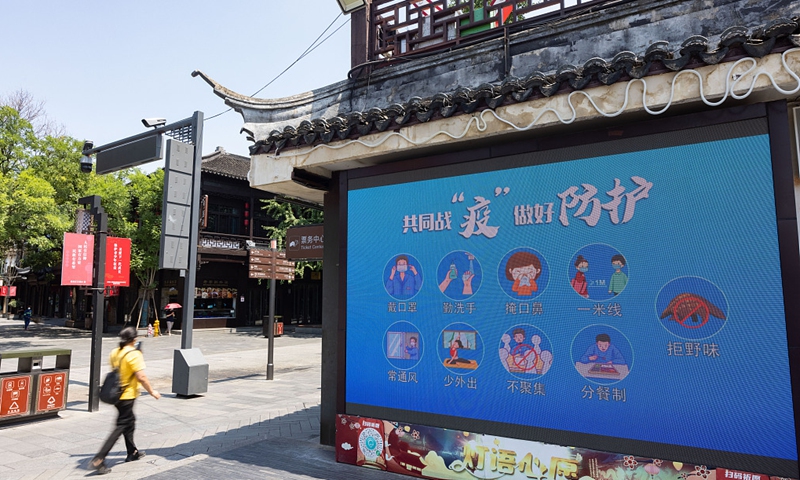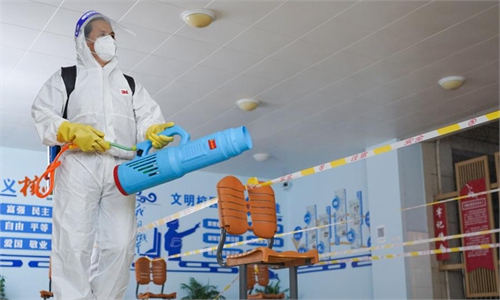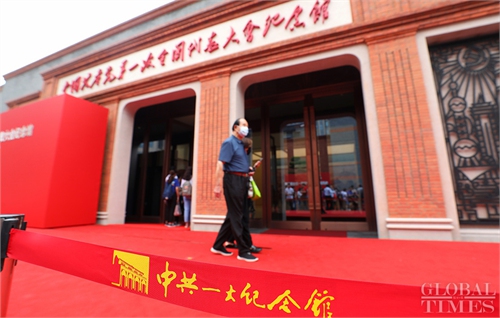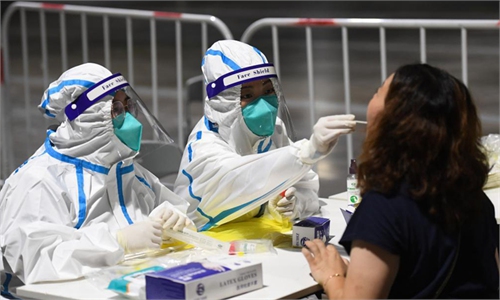Nanjing Delta outbreak expected to cut summer tourism revenue by over 50% across popular spots in China

Photo:CFP
The recent Delta outbreak in Nanjing, East China's Jiangsu Province, will have a grim impact on the summer holiday tourism market across the country. According to industry players, the outbreak is expected to cut more than half of the tourism revenue across popular scenic spots.
"The impact of recent case resurgence on the summer tourism market is grim, with popular scenic spots in central and eastern China expected to see more than 50 percent plunge in tourism revenue," Xu Xiaolei, marketing manager at China's CYTS Tours Holding Co, told the Global Times on Saturday.
Without the latest outbreak, the domestic tourism market was expected to recover to 90 percent of the pre-pandemic level during the summer holidays, Xu said. He added that the sudden and fast spread of recent cases has dampened consumers' confidence, leading many to cancel their trips.
As of 1 pm on Saturday, there are 30 medium-risk areas in Nanjing, East China's Jiangsu Province, while China has two high-risk areas and 63 medium-risk areas as a whole.
A manager surnamed Tang at Zhangjiajie Chunqiu International Travel Service Co told the Global Times on Saturday that more than 20 tour groups, about 500 tourists in total, scheduled for August have been canceled.
"The combined loss for July and August is estimated at around 1.5 million yuan (232,200)," Tang said, noting that all of the company's 40-some tour guides are still in quarantine.
Zhangjiajie, a popular tourist destination in Central China's Hunan Province, has become another hot spot of the recent resurgence of the epidemic, following spillover cases from Nanjing to the city.
All scenic spots in Zhangjiajie were closed on Friday morning to curb the spread of the virus. Tang also said that hotels that rely on tourists are shutting down in the city.
In response to the outbreak, the Ministry of Culture and Tourism asked scenic spots to control the maximum number of tourists they receive and strictly implement COVID-19 prevention measures. The ministry also asked tourism agencies not to organize tour groups to medium- and high-risk areas.
The health authority in Southwest China's Guizhou Province asked residents not to travel outside the province, especially to cities that have reported COVID-19 cases.
Meanwhile, domestic online travel service providers immediately announced refund measures. For example, Alibaba-backed Fliggy said tourists who planned to travel to scenic spots located in medium- and high-risk areas between July 28 and August 13 can have their tickets refunded for free. Hotel bookings can also be canceled for free, the company said.
However, Xu called for a balance between COVID-19 prevention and the recovery of the domestic tourism market. "In northwestern and southwestern China that are slightly or not affected by the outbreak, there is no need to disrupt normal tourism market if health authorities and travel agencies can work together to control the outbreak."
Latest data from the Ministry of Culture and Tourism showed that a total of 1.87 billion tourist trips were made across the country in the first half of the year, recovering to 60.9 percent of the same period in 2019.



